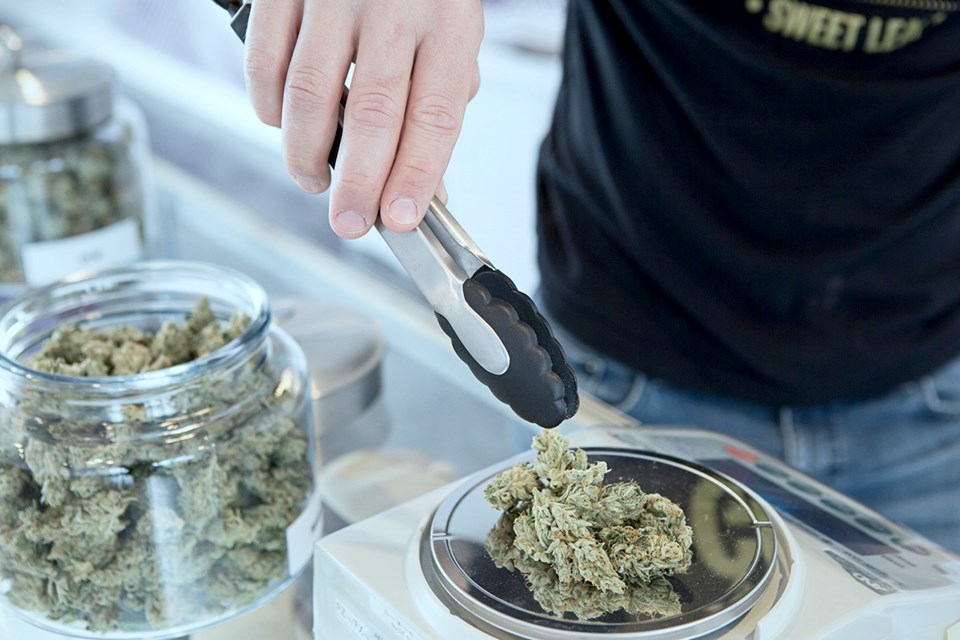It’s high time B.C. municipalities get their cut of the province’s cannabis tax revenues, says Port Moody council.
Tuesday, councillors voted to present a resolution at the upcoming Lower Mainland Local Government Association’s (LMLGA) annual conference calling upon the provincial government to share with municipalities up to 50 per cent of its revenues generated from the production and sale of cannabis products. The conference is being held May 3–5 at Harrison Hot Springs.
In a report, Coun. Kyla Knowles said when the sale of cannabis products for recreational use was legalized by the federal government in 2018, it agreed to split its tax revenues from those sales 75/25 with the provinces, with all revenue above a $100M cap going back to the provinces.
Further, that year’s federal budget stated municipalities would be expected to get “a substantial portion” of those revenues because they’re “on the front lines of legalization.”
That’s happening in Ontario, Quebec and Alberta communities where cannabis shops are located. According to the Association of Municipalities Ontario, its members expect to receive a total of $40 million over the next two years.
But British Columbia has yet to share its weed wealth.
A 2019 report by the Union of BC Municipalities said local governments are on the hook for average $11.5 million a year to cover costs related to the legal sale of recreational cannabis, like administration and support, planning and zoning, as well as policing.
According to Stratcann, a cannabis industry newsletter, the BC government has realized more than $157 million from its share of federal excise taxes on cannabis sales since they were legalized.
Similar resolutions have been proposed or introduced by various communities almost annually at conferences of the LMLGA and Union on BC Municipalities (UBCM) since 2018.
Meanwhile, council also backed a resolution introduced by Coun. Samantha Agtarap calling for the province to share casino revenue more equitably so even communities without a casino in a regional district can get some of the financial action.
In a report, Agtarap said while communities with a casino get 10 per cent of British Columbia’s net gaming revenue to help pay for a variety of social and health care services and programs, the side effects of gambling aren’t confined by municipal borders.
“The impacts are not limited to the host community,” she said. “Especially in highly integrated regions such as Metro Vancouver.”
Agtarap said seven municipalities in Metro Vancouver that have casinos have received almost $1 billion in gaming revenue from the province. But those without casinos — like Port Moody — have received nothing, nor are they necessarily guaranteed a share of community gaming grants distributed annually by the BC Lottery Corporation.
“Residents from all communities access and use amenities across the region, from hospitals to casinos to parks,” Agtarap said. “Revenue should be shared in an equitable manner that recognizes this.”
In February, council’s finance committee learned Port Moody property owners could be facing an 11.33 per cent property tax hike this year.
Port Moody’s manager of financial planning, Tyson Ganske, said without revenue generators like a casino and paid parking, the city is struggling to keep pace with the demand for its services as it grows.
Other resolutions endorsed by council to go to the LMLGA conference include:
- update the provincial Strata Property Act to allow the installation of heat pumps in multi-family buildings
- amend the residential tenancy act to require cooling units in rental buildings
- adopting strategies to make cities more inclusive
- consider including pet-friendly solutions in the update of the province's housing strategy
- implement public funding for candidates running in municipal elections and ban endorsements



